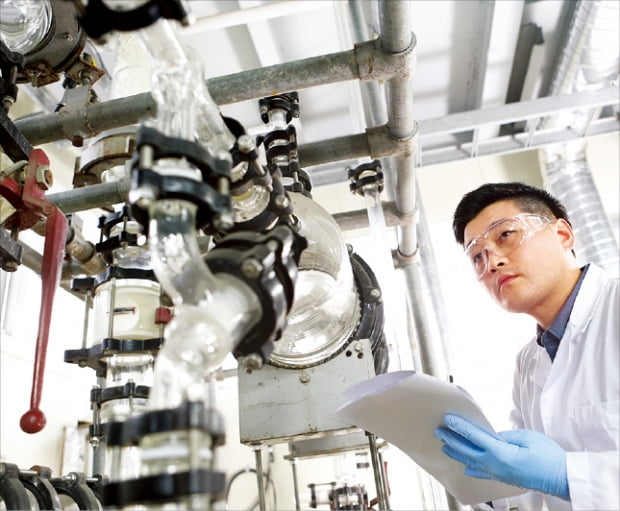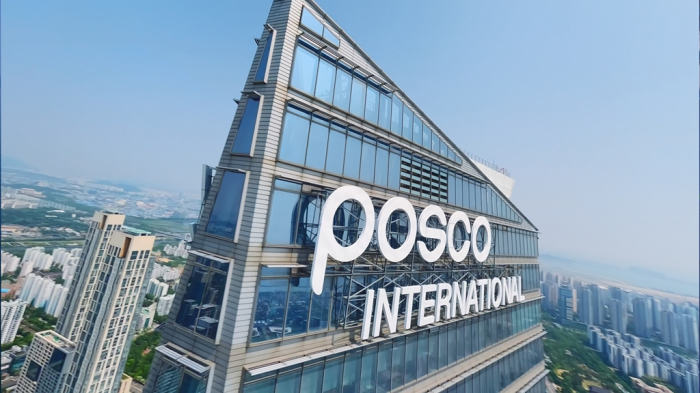Kumho Petrochem, POSCO look to carbon nanotube JV, share swap
Kumho is eyeing the JV as its main petrochemical business is struggling with falling sales and profit
By Oct 27, 2023 (Gmt+09:00)
LG Chem to sell water filter business to Glenwood PE for $692 million


KT&G eyes overseas M&A after rejecting activist fund's offer


Kyobo Life poised to buy Japan’s SBI Group-owned savings bank


StockX in merger talks with Naver’s online reseller Kream


Meritz backs half of ex-manager’s $210 mn hedge fund



South Korea’s Kumho Petrochemical Co. and POSCO International Corp. are considering launching a joint venture to produce carbon nanotubes (CNTs), regarded as a next-generation battery material.
The two companies also plan to swap their own shares worth 300 billion won ($221 million) to solidify the partnership, people familiar with the matter said on Friday.
Kumho is in talks to transfer its CNT technology to POSCO International with an aim to complete the establishment of the JV by early next year, sources said.
The partners are also in negotiations on the size of a share swap.
As of the end of June, Kumho Petrochemical has 19.5% of its total outstanding shares as treasury stock worth 700 billion won while POSCO International has a 3.39% stake as treasury stock worth 316 billion won.
The two companies are considering a share swap to the tune of some 300 billion won, the sources said.

GROWIN DEMAND AS BATTERY MATERIAL
CNT has very high heat conductivity, comparable to that of diamond crystal and copper, and can be more than 100 times stronger than steel.
The material has been used in various sectors such as semiconductor processing trays, automotive conductive coatings and car exterior materials.
More recently, it has been used as a rechargeable battery material. CNT has more than 10% higher electrical conductivity than carbon black, which is commonly used for cathode production. It also helps increase the volume of cathodes in batteries, thus extending cell capacity and lifespan.
With the growing demand for electric cars, the global CNT market is forecast to rise 30% on average annually to 95,000 tons by 2030 from 14,000 tons in 2022.
Kumho Petrochemical is one of Korea’s three major carbon nanotube makers alongside LG Chem Ltd. and JEIO Co.
As Korea’s first CNT company that entered the market in 2009, Kumho has expanded its production capacity to 120 tons from 50 tons in 2013. Its capacity will rise to 360 tons next year when another plant in Yeosu is slated to begin operations.

Kumho’s sales revenue from its CNT business was about 10 billion won in 2022.
Currently, LG Chem is Korea’s largest CNT maker, which broke ground on its fourth CNT factory in May.
KUMHO’S BUSINESS RESTRUCTURING
Kumho, through the planned JV with POSCO, aims to take on LG Chem and Chinese rivals, which dominate the global carbon nanotube market.
POSCO International, the general trading and energy exploration unit of Korea’s steel giant POSCO Holdings Inc., has been expanding its business scope to the secondary battery material business.
The JV project comes as Kumho’s main petrochemical business, which makes synthetic rubber, synthetic resin and phenolic derivatives, loses steam.
In the first half, the company, on a consolidated basis, posted 107.9 billion won in operating profit on sales of 1.58 trillion won, down 69.5% and 29.7%, respectively, from a year earlier.
The company said in a New Year’s plan earlier this year that it will increase investment to diversify and improve the quality of its CNT products in line with the growing eco-friendly vehicle market.
Write to Jun-Ho Cha and Hyung-Kyu Kim at chacha@hankyung.com
In-Soo Nam edited this article.
-
 EnergyPOSCO International, GS Caltex to build palm oil refinery in Indonesia
EnergyPOSCO International, GS Caltex to build palm oil refinery in IndonesiaOct 12, 2023 (Gmt+09:00)
1 Min read -
 BatteriesLG Chem breaks ground on 4th cathode material plant in S.Korea
BatteriesLG Chem breaks ground on 4th cathode material plant in S.KoreaMay 31, 2023 (Gmt+09:00)
1 Min read -
 PetrochemicalsKumho Petrochem signs MOU with Japanese second-largest refiner
PetrochemicalsKumho Petrochem signs MOU with Japanese second-largest refinerMay 17, 2023 (Gmt+09:00)
1 Min read -
 Corporate strategyPOSCO International to transform into green company by 2030
Corporate strategyPOSCO International to transform into green company by 2030Apr 13, 2023 (Gmt+09:00)
1 Min read -

-
 PetrochemicalsKumho Petrochemical to recycle plastic waste with French partner
PetrochemicalsKumho Petrochemical to recycle plastic waste with French partnerNov 22, 2022 (Gmt+09:00)
1 Min read -
 PetrochemicalsContrarian leader's bets drive Kumho Petrochem's record profits
PetrochemicalsContrarian leader's bets drive Kumho Petrochem's record profitsDec 16, 2021 (Gmt+09:00)
2 Min read -
 Chemical IndustryLG Chem challenges top latex player Kumho with aggressive expansion
Chemical IndustryLG Chem challenges top latex player Kumho with aggressive expansionJul 12, 2021 (Gmt+09:00)
3 Min read


